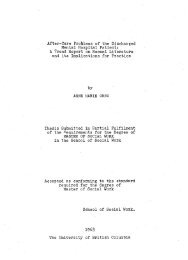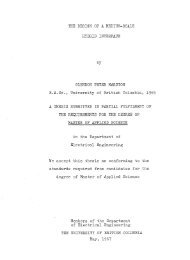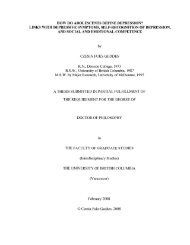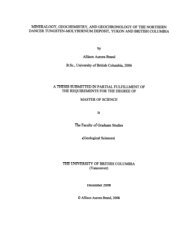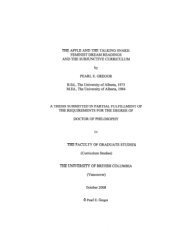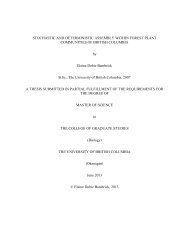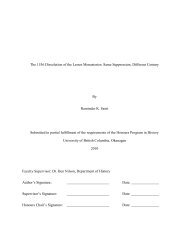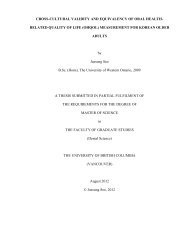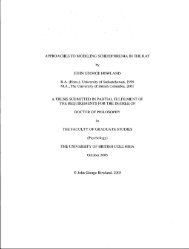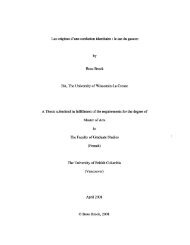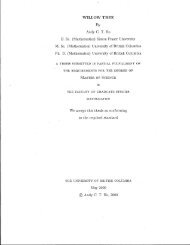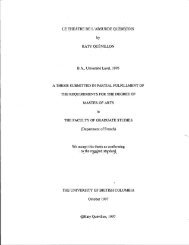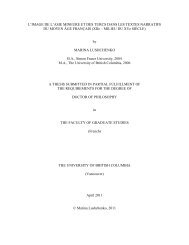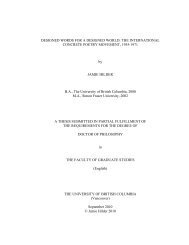A STUDY OF THE THEORY OF APPRAISAL FOR SELECTION By ...
A STUDY OF THE THEORY OF APPRAISAL FOR SELECTION By ...
A STUDY OF THE THEORY OF APPRAISAL FOR SELECTION By ...
You also want an ePaper? Increase the reach of your titles
YUMPU automatically turns print PDFs into web optimized ePapers that Google loves.
Schellenberg then proceeds to define informational value as<br />
the value that is derived from "information that is in public<br />
records on persons, places, subjects and the like with which<br />
public agencies deal; not from the information that is in such<br />
records on the public agencies themselves."22 Such information<br />
is primarily found in the large series of modern government<br />
records such as vital records, citizenship records, land records<br />
and case files. Schellenberg identifies these records as being<br />
useful in the research of broad social questions, which can<br />
contribute to an understanding of historical causation and<br />
historical movements, such as the westward expansion of the<br />
United States.23<br />
The problem with the concept is that Schellenberg limits<br />
informational value to information that is incidental to the<br />
substantive functions of the organization. He does not consider<br />
the nature of archives, in which the meaning of information in<br />
records is interrelated by the very act of creation and natural<br />
accumulation. At some level, however, Schellenberg understands<br />
the confluence of primary and secondary value. He notes that<br />
records that contain evidence of the mandate, functions, and<br />
activities of an organization have value for the creator "to the<br />
extent that they are needed for the current or future functioning<br />
of his agency; they have value for the archivist to the extent<br />
22 ibid, 148.<br />
23 'bid, 150-151.<br />
101



